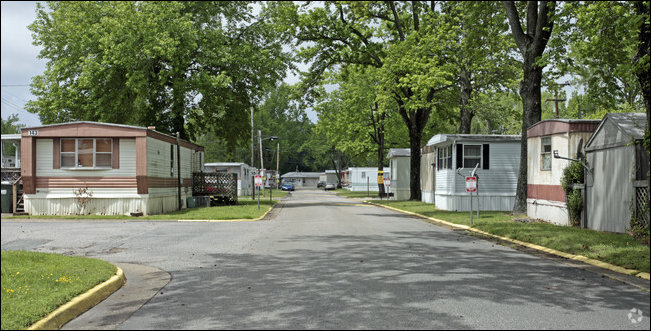by James A. Bacon
The good news is that the poverty lobby has recognized that mobile home parks provide a valuable source of affordable housing in Virginia. The bad news is that… the poverty lobby wants to help.
There are about 600 mobile home parks in Virginia. The average sales price for a single-width mobile home is about $53,000 (not including lots), a fraction of the $280,000 median price for a single-family house. These parks provide affordable housing for tens of thousands of Virginians — more than 11,400 in Central Virginia alone.
One way to approach mobile homes in Virginia is to say, “Fantastic! A source of affordable housing. How can we open up more land for development of mobile home parks? How can we increase the supply and give poor people more options for where to live and whom to rent or buy land from?”
Another way to approach mobile homes is to look at the negatives. It turns out that many are in disrepair. Figure that — homes owned by poor people are in disrepair. Not only that, Christie Marra, director of housing advocacy at the Virginia Poverty Law Center, tells Virginia Public Media (VPM), many trailer parks have less than desirable surroundings. “They didn’t have street lights, they didn’t have paved roads, they didn’t have up-to-date electricity or sewer systems.”
Moreover, Marra says, people renting lots in mobile home parks are vulnerable to exploitation. Corporations are snapping up mobile home parks around the country. Sometimes they raise rent. Sometimes they want to convert the land to townhomes or luxury condos. Inhabitants don’t have many options. Moving a mobile home can cost up to $10,000.
The answer? VPM highlights a bill introduced by Del. Luke Torian, D-Prince William, that would require landlords to give residents at least 90 days notice of their intent to sell a park. The idea is to give residents time to organize themselves so they can make an offer to the landowner and purchase the land themselves. A more intrusive proposal would require landlords to cover some of the mobile-home relocation expenses.
The Virginia Poverty Law Center has other ideas on how to help mobile home dwellers by tweaking the Mobile Home Lot Rental Act, but the VPM article provides no additional details.
Bacon’s bottom line: It’s true that corporations are buying trailer parks all over the country. The Wall Street Journal published a front-page article on the phenomenon just a few days ago. Trailer parks enjoy extremely high occupancy rates — 96.4% for Sun Communities, owner of 422 parks in the U.S. and Canada. That’s because, as the WSJ says, “Even if residents can afford to move their homes, there aren’t many places to plop an old double-wide. Plans for new parks usually meet resistance. The right zoning is hard to find.”
“People don’t want to have a trailer park in their backyard,” says John Pawlowski, an analyst at real-estate research firm Green Street Advisors. “It’s nimbyism to the nth degree.”
Restrictions on competition are what make trailer parks so appealing to corporate investors. Increase the supply of mobile home parks and many of the consumer problems go away. Greater supply gives mobile-home owners more options, which gives them more bargaining power with landlords. There’s nothing terribly wrong with giving tenants an opportunity to buy out their landlord, as Torian proposes to — although I question how many poor people have the skill sets to execute a complex financial transaction like that. My objection is that the measure doesn’t come close to addressing the underlying problem.
If poverty warriors want to increase the mobile-home option, they should focus on eliminating barriers. The VPLC’s Marra knows what some of those barriers are. She mentions them in the article. Virginia law requires mobile homes to get titled as vehicles through the DMV; as a consequence, owners cannot get traditional mortgages. Zoning and nimbyism — restrictions on the rights of landowners to develop property as they please — are an even bigger barrier, especially in more densely populated localities.
Surely it should be possible to build a legislative coalition of poverty warriors, home builders, property-rights advocates and free-market adherents to eliminate those obstacles.



